Related Research Articles
Medical anthropology studies "human health and disease, health care systems, and biocultural adaptation". It views humans from multidimensional and ecological perspectives. It is one of the most highly developed areas of anthropology and applied anthropology, and is a subfield of social and cultural anthropology that examines the ways in which culture and society are organized around or influenced by issues of health, health care and related issues.
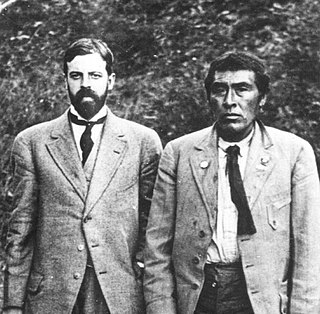
Alfred Louis Kroeber was an American cultural anthropologist. He received his PhD under Franz Boas at Columbia University in 1901, the first doctorate in anthropology awarded by Columbia. He was also the first professor appointed to the Department of Anthropology at the University of California, Berkeley. He played an integral role in the early days of its Museum of Anthropology, where he served as director from 1909 through 1947. Kroeber provided detailed information about Ishi, the last surviving member of the Yahi people, whom he studied over a period of years. He was the father of the acclaimed novelist, poet, and writer of short stories Ursula K. Le Guin.
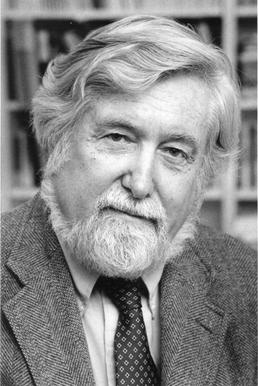
Clifford James Geertz was an American anthropologist who is remembered mostly for his strong support for and influence on the practice of symbolic anthropology and who was considered "for three decades... the single most influential cultural anthropologist in the United States." He served until his death as professor emeritus at the Institute for Advanced Study, Princeton.
Arthur Michael Kleinman is an American psychiatrist, social anthropologist and a professor of medical anthropology, psychiatry and global health and social medicine at Harvard University.
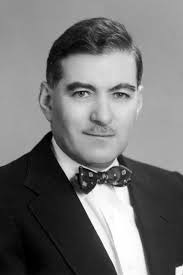
Sol Tax was an American anthropologist. He is best known for creating action anthropology and his studies of the Meskwaki, or Fox, Indians, for "action-anthropological" research titled the Fox Project, and for founding the academic journal Current Anthropology. He received his doctorate from the University of Chicago in 1935 and, together with Fred Eggan, was a student of Alfred Radcliffe-Brown.
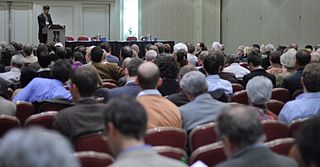
The History of Science Society (HSS), founded in 1924, is the primary professional society for the academic study of the history of science. The society has over 3,000 members worldwide. It publishes the quarterly journal Isis and the yearly journal Osiris, sponsors the IsisCB: History of Science Index, and holds an annual conference. As of January 2023, the current president of the HSS is Fa-ti Fan.

Marvin Kaufmann Opler was an American anthropologist and social psychiatrist. His brother Morris Edward Opler was also an anthropologist who studied the Southern Athabaskan peoples of North America. Morris and Marvin Opler were the sons of Austrian-born Arthur A. Opler, a merchant, and Fanny Coleman-Hass. Marvin Opler is best known for his work as a principal investigator in the Midtown Community Mental Health Research Study. This landmark study hinted at widespread stresses induced by urban life, as well as contributing to the development of the burgeoning field of social psychiatry in the 1950s.
Tom Boellstorff is an anthropologist based at the University of California, Irvine. In his career to date, his interests have included the anthropology of sexuality, the anthropology of globalization, digital anthropology, Southeast Asian studies, the anthropology of HIV/AIDS, and linguistic anthropology.

The Annual Review of Anthropology is an academic journal that publishes review articles of significant developments in anthropology and its subfields. First published by Stanford University Press in 1959 under the name the Biennial Review of Anthropology, it became known as the current title in 1972 when its publication was assumed by Annual Reviews. Don Brenneis and Karen B. Strier have been the editors since 2013. As of 2023, according to Journal Citation Reports, the journal has an impact factor of 2.8 for the year 2022. As of 2023, it is being published as open access, under the Subscribe to Open model.
Richard Price is an American anthropologist and historian, best known for his studies of the Caribbean and his experiments with writing ethnography.
Richard Bauman is a folklorist and anthropologist, now retired from Indiana University Bloomington. He is Distinguished Professor emeritus of Folklore, of Anthropology, and of Communication and Culture. Before coming to IU in 1985, he was the Director of the Center for Intercultural Studies in Folklore and Ethnomusicology at the University of Texas and a faculty member in the UT Department of Anthropology. Just before retiring from Indiana, he was chair of the IU Department of Folklore and Ethnomusicology, as well as an important member of the Department of Anthropology and the Department of Communication and Culture.
George J. Armelagos was an American anthropologist, and Goodrich C. White Professor of Anthropology at Emory University in Atlanta, Georgia. Armelagos significantly impacted the field of physical anthropology and biological anthropology. His work has provided invaluable contributions to the theoretical and methodological understanding human disease, diet and human variation within an evolutionary context. Relevant topics include epidemiology, paleopathology, paleodemography, bioarchaeology, evolutionary medicine, and the social interpretations of race, among others.
Ernestine Friedl was an American anthropologist, author, and professor. She served as the president of both the American Ethnological Society (1967) and the American Anthropological Association (1974–1975). Friedl was also the first female Dean of Arts and Sciences and Trinity College at Duke University, and was a James B. Duke Professor Emerita. A building on Duke's campus, housing the departments of African and African American Studies, Cultural Anthropology, the Latino/Latina Studies program, and Literature was named in her honor in 2008. Her major interests included gender roles, rural life in modern Greece, and the St. Croix Chippewa Indians of Wisconsin.
Marie Margaret Keesing (née Martin) was an anthropologist and educator with strong ties to the Pacific. With a degree in anthropology from the University of New Zealand, she spent most of her working life in the United States, where she worked closely with her husband, a fellow New Zealander and renowned anthropologist Felix Maxwell Keesing. She published a number of works, and co-authored several significant books with her husband, including Taming Philippine Headhunters: a Study of Government and of Cultural Change in Northern Luzon (1934) and Elite Communication in Samoa: A Study of Leadership (1956).
Felix M. Keesing was a New Zealand-born anthropologist who specialized in the study of the Philippine Islands and the South Pacific. He came to the United States in the 1940s and taught at Stanford University, California, 1942–1961.
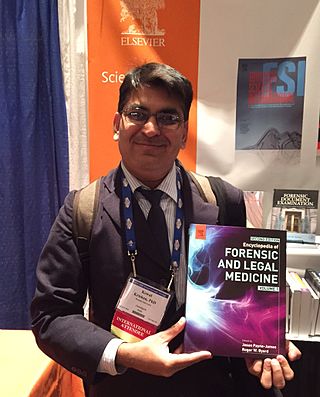
Kewal Krishan, an Indian forensic anthropologist, is a professor of physical anthropology and former Chair of Department of Anthropology at Panjab University, Chandigarh, India. He has contributed to the development of forensic anthropology in India. He is one of the very few forensic anthropology experts of the nation.
Diana Elizabeth Forsythe was a leading researcher in anthropology and a key figure in the field of science and technology studies. She is recognized for her significant anthropological studies of artificial intelligence and informatics, as well as for her studies on the roles of gender and power in computer engineering.
Dr. Faye Venetia Harrison is an American anthropologist. Her research interests include political economy, power, diaspora, human rights, and the intersections of race, gender, and class. She is currently Professor of African American Studies and Anthropology at the University of Illinois at Urbana-Champaign. She formerly served as Joint Professor of Anthropology and African American Studies at the University of Florida. Harrison received her BA in Anthropology in 1974 from Brown University, and her MA and PhD in Anthropology from Stanford University in 1977 and 1982, respectively. She has conducted research in the US, UK, and Jamaica. Her scholarly interests have also taken her to Cuba, South Africa, and Japan.
Peter Thorpe Ellison is an American anthropologist who researches human reproductive ecology. His work has been recognized with a Guggenheim Fellowship and membership of the National Academy of Sciences, among other honors. He has also served as the editor-in-chief of the American Journal of Human Biology and American Journal of Physical Anthropology and editor of Annual Review of Anthropology.
Stephen A. Tyler (1932-2020) was an American anthropologist and Herbert S. Autrey Professor Emeritus of Anthropology and Linguistics at Rice University. He is known for his works on cultural anthropology.
References
- 1 2 3 4 5 6 7 Trei, Lisa (10 September 2003). "Bernard Siegel dies; founded anthropology department". Stanford Report. Retrieved 16 December 2020.
- 1 2 3 Wall, Alix (29 August 2003). "Anthropologist, Hillel devotee Bernard Siegel dies at 85". J. Retrieved 16 December 2020.
- ↑ "Obituaries - January/February 2004". Stanford Magazine. 2004. Retrieved 16 December 2020.
- ↑ "Bernard Siegel -- anthropology prof at Stanford". SFGate. 3 September 2003. Retrieved 16 December 2020.
- 1 2 3 Siegel, Bernard J. (1993). "The First Twenty Years". Annual Review of Anthropology. 22: 1–35. doi:10.1146/annurev.an.22.100193.000245. S2CID 143544626.
- 1 2 3 "Front Matter". Biennial Review of Anthropology. 7: i–vii. 1971. JSTOR 2949226.
- ↑ "Student Achievements". Anthropology Newsletter. Vol. 8. 2015.
- ↑ "Charlotte Siegel". San Francisco Chronicle. 16 January 2020.